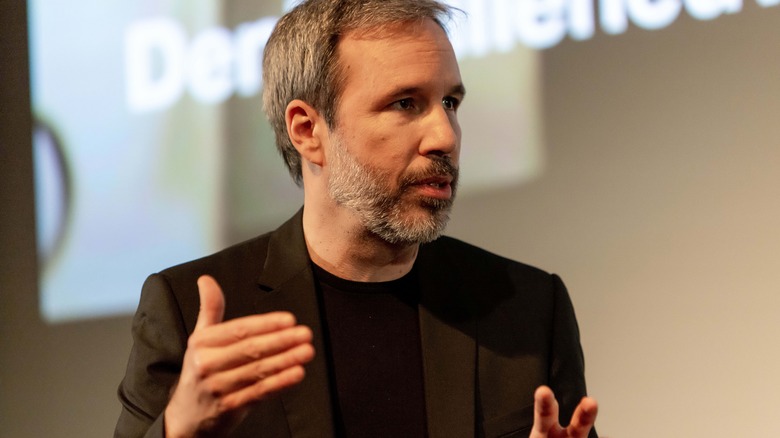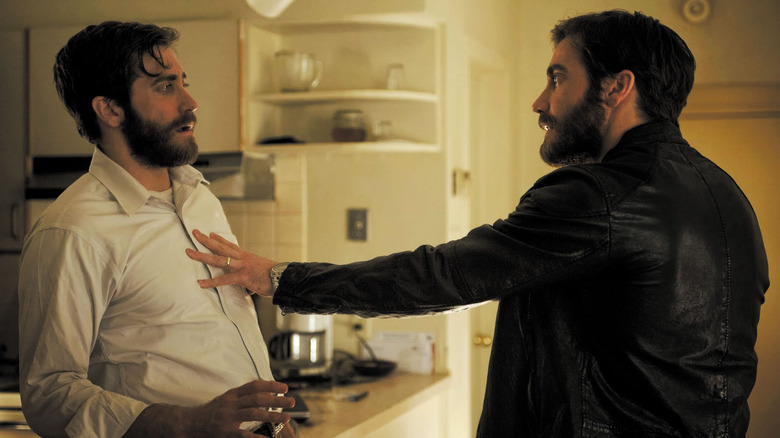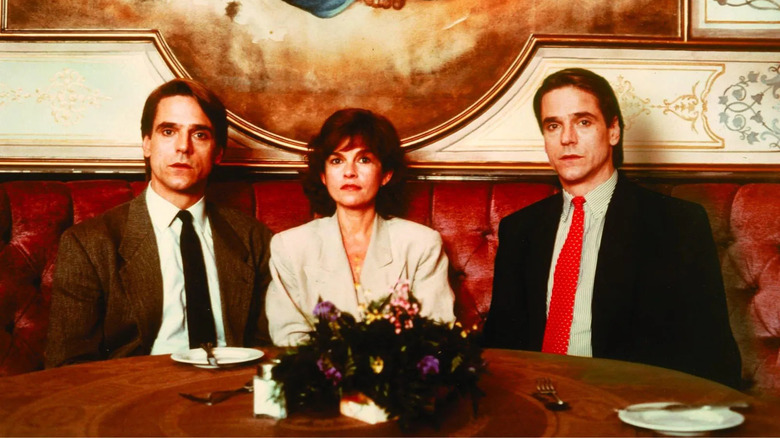The Classic Horror Movie Denis Villeneuve Thinks Is Traumatic
Denis Villeneuve and David Cronenberg have more in common than being Canadian. Both have made films about the trauma and obsession people experience in relation to car crashes ("Maelström" and "Crash," respectively). Both are drawn to projects about people who lose themselves in an abyss of self-destructive obliteration ("Prisoners," and, well, just about any Cronenberg movie). Both have remade well-regarded, 30-year-old science fiction films ("The Fly" and "Blade Runner 2049"). Both have worked with actress Sarah Gadon ("Enemy" and "Cosmopolis"). And, most notably for our purposes, both have made films about buttoned-down professionals who have duplicates ("Enemy" and "Dead Ringers").
"Dead Ringers," released in 1988, was based on the 1977 novel "Twins" by Bari Wood and Jack Geasland, which itself was an extremely fictionalized version of the lives of twin gynecologists Stewart and Cyril Marcus. The Marcus brothers had died under mysterious circumstances: In July 1975, they were both found dead in separate New York City apartments at about the same time — presumably of mutual drug overdoses, although the actual cause of their deaths remains inconclusive. In Cronenberg's version of the story, the brothers were renamed Elliot and Beverly Mantle. Both were played by Jeremy Irons in a career-best performance.
In "Dead Ringers," the Mantles made a habit of switching identities, and both sleep with various women using that subterfuge. Their lascivious practice is challenged by an actress (Geneviève Bujold) who becomes deeply beloved by only one brother. The offset of priorities causes the strange, dark psychological balance between the twins to deteriorate.
Enemy vs. Dead Ringers
When Villeneuve was making "Enemy" in May of 2012, he was conscious of the comparison some might make between "Enemy" and "Dead Ringers." "Enemy" is also about a pair of identical men, although not explicitly brothers. Nevertheless, they become weirdly, psychically intertwined; they have common dreams, for instance. In an interview with Filmmaker Magazine, Villeneuve revealed that, in order to overcome what literary critic Harold Bloom referred to as The Anxiety of Influence, he rewatched "Dead Ringers" several times during production to avoid using any of the dynamics or visual tricks that Cronenberg had laid out in 1988:
"In some ways, when you're doing a movie [today], it's very tough to make something new. Even when you think you are making something new, you find out later that somebody did it before you. It's very hard, very frustrating. Of course, we watched 'Dead Ringers' again."
And Villeneuve was unnerved throughout the process. Not because he found he was imitating his predecessor, but because "Dead Ringers" is such a terse, emotionally confrontational movie. There's a reason you'll find it in the horror section of your local video store.
"'Dead Ringers' is one of the most traumatic movies I've seen in my life. 'Dead Ringers' deals with that kind of strange exploration of intimacy as well, but from a different point of view."
Outrunning cliché
Villeneuve was also aware of stories about doppelgängers — indeed, the notion stretches back into most ancient mythologies in human culture. Several authors claim to have met their spouses' doppelgängers, or even their own; Percy Bysshe Shelley told his wife Mary Shelley that he met his own double shortly before his death, as Mary later wrote to a colleague. The doppelgänger story that comes closest to Villeneuve's "Enemy" is arguably Fyodor Dostoyevsky's 1946 novel "The Double," about a twin who represents a person's opposite and who exploits them and takes over their life. (Could that perhaps be a metaphor for the invasive nature of depression?)
Duplicates are such a common story trope that they show up in just about every Saturday morning cartoon at one point or another. ("Shoot him! He's the imposter!") Villeneuve was aware of these traditions, and talked about them in the interview:
"And there are a lot of double-identity movies that are something of a cliché. What I tried to portray in the movie that I never saw before is the impact of seeing yourself be the bad guy — the strength and the fear of being in contact with yourself."
Denis Villeneuve's next film will be a double as well: The second part of "Dune."


